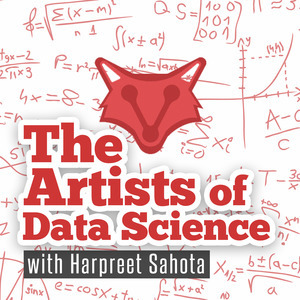Learning How To Learn | Barbara Oakley
July 9th, 2021
1 hr 31 mins 27 secs
Season 14
About this Episode
Barbara's published in outlets as varied as the Proceedings of the National Academy of Sciences, the Wall Street Journal, and The New York Times. She’s also authored 10 books on topics ranging from the negative aspects of altruism to career development in bioengineering.
If you’re one of the 2.7 million people who have taken her course on Coursera, you might recognize her as the instructor of the world’s most popular online course: Learning How To Learn: Powerful mental tools to help you master tough subjects.
MEMORABLE QUOTES
[00:09:44] “Lady luck favors those who try.”
[00:11:02] “Sometimes people are so agonizing about which problems they should study intensively that they don’t do any of it. And so what I’m trying to encourage people to do is to just start to speak of a problem that feels like it might be an important one so that you are not memorizing it instead of you.”
[00:16:06] “I think being willing to go back to first principles and think independently and work in a corner all by yourself but still be willing to have people look at what you have come up with because they can shoot legitimate holes and things.”
[00:33:54] “… I think that’s the kind of deep mastery that occurs when you’ve learned both ways really well because sometimes stuff will just come to you quickly.”
[00:37:33] “… well, you can’t get from there to here, if you are really focusing on this one little area, you are stuck. And the only way or the best way to get yourself unstuck is to get your focus off what you’re doing.”
[00:45:16] “…I think there’s this ying and yang of going deep into work and not being distracted,
is really important but also being aware that sometimes it’s OK to be distracted.”
HIGHLIGHTS FROM THE SHOW
[00:00:38] Guest Introduction.
[00:03:22] What type of kid were you in high school. What did you think your future was going to look like when you were in high school?
[00:07:53] What was it like, forcing yourself to get better at math and learning, convincing yourself that she can learn it?
[00:12:10] what would you say your relationship with luck is? And how have you managed to create your own luck in life?
[00:18:21] What role do self image and self perception play when we are trying to learn something or even advancing in our own field?
[00:21:39] Do you count specialization the same as being pigeonholed?
[00:27:15]Barbara asks Harpreet if he’s thought about writing a book.
[00:28:44] How have you used transfer to your advantage during your varied career?
[00:35:10] Can you describe the focus and diffuse mode of thinking and how they work together to help us solve problems?
[00:42:43] How do you know it’s time to get a diffuse mode break?
[00:47:47] What are the differences between the default mode network and the reticular activating system? And what effects do they have on creativity?
[00:53:26] What would you say is the difference between Art and Science?
[00:55:39] What role does creativity play in Science?
[01:00:28] How do you find out what it is that you are actually creative at? What can we do to help us recognize that?
[01:02:11] What is the relationship between emotional state and our capacity to learn things?
[01:08:04] Doesn’t your brain make you think how you can change your brain by thinking?
[01:10:51] What implication does this have for the way we talk to ourselves, our inner monologue, and our inability to think?
[01:12:08] Is there a relationship between your self talk and your particular activating system or even your default mode network?
[01:18:43] Barbara tells about the latest book that she’s reading and enjoying.
[01:19:26] It’s 100 years in the future, what do you want to be remembered for?
[01:19:53] The Random Round
